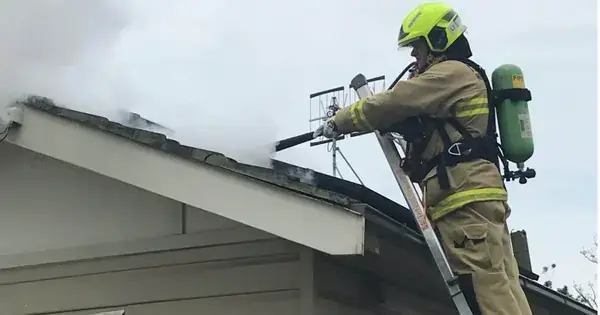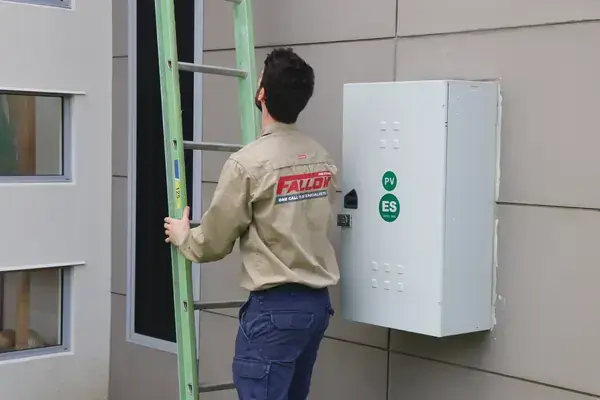3 October 2023
Solar Safety Concerns: The Surge in DC Isolator Fires
Recent news reports have highlighted a significant increase in fires caused by DC isolators in solar photovoltaic (PV) systems. DC isolators are critical components designed to disconnect solar PV systems from mains power. They play a pivotal role in ensuring the safety and reliability of solar installations. Ms Dela Cruz’s home is one of 11 properties in the Northern Territory so far this year to suffer a fire from a DC isolator part of a solar PV system, an increase from only four recorded previously. In QLD there have been 37 in total, 11 from this year alone.

However, several factors have contributed to these fires:
1. Lack of Maintenance:
One key factor is the lack of regular maintenance for rooftop solar systems. An Energy Safe Victoria spokesman said a key driver of the increase was a lack of servicing of rooftop solar systems. ”Our research shows that people understand the importance of servicing, but most don’t do it for a variety of reasons — including cost, but also because a lot of people do not realise you even have to,” he said. Over time, dust, debris, and environmental factors can affect the components’ performance, including DC isolators.
2. Aging Installations:
Another issue is that a significant number of solar PV systems are more than seven years old. As these systems age, the likelihood of component failures, including DC isolators, increases. Some of these systems might have been installed without adherence to the best practices for safety.
3. Installation Quality:
Inadequate installation practices can compromise the waterproof ratings of DC isolators. When waterproofing is compromised, moisture can penetrate the components, leading to electrical failures and, in some cases, fires.
How to minimise the risk of this happening to you:
Ensuring the safety and reliability of your solar PV system is paramount. Here are steps that homeowners and reputable solar installers like Fallon Solutions can take to address the issue and prevent DC isolator fires:
1. Routine Maintenance:
Homeowners should schedule regular maintenance for their solar PV systems. This involves inspections, cleaning, and testing of all components, including DC isolators. Maintenance helps identify issues before they escalate into safety hazards.
2. Reputable Installation:
Choosing a reputable solar installer like Fallon Solutions is crucial. Experienced installers follow industry best practices, ensuring that the installation is safe, compliant, and long-lasting. They pay close attention to details such as waterproofing to prevent moisture-related issues.
3. Quality Components:
High-quality components, including DC isolators, are essential. Reputable installers use reliable and well-rated products, reducing the risk of failures.
4. Periodic Testing:
Implementing mandatory periodic testing by solar providers can help identify potential issues early. Routine testing ensures that the system operates as intended and is in compliance with safety standards.
5. Public Awareness:
Raising awareness among homeowners about the importance of solar system maintenance and safety measures is crucial. This education empowers homeowners to take proactive steps in ensuring the safety of their solar installations.

As a reputable and licenced installer and dealer of solar solutions, we understand the importance of addressing these safety concerns and ensuring the reliability of your solar PV system. By prioritising regular maintenance, quality installations, and public education, we can harness the benefits of solar energy while minimising the associated safety risks.
A solar PV system can only help reduce your power bills if it’s working well and generating enough power. With our $99 Solar Performance & Safety Check we are ensuring a continued relationship as we provide ongoing support and maintenance. During the check our technician will inspect your panels and cabling, check your inverter and look for any other factors that can have a negative impact on the performance of your solar system.

